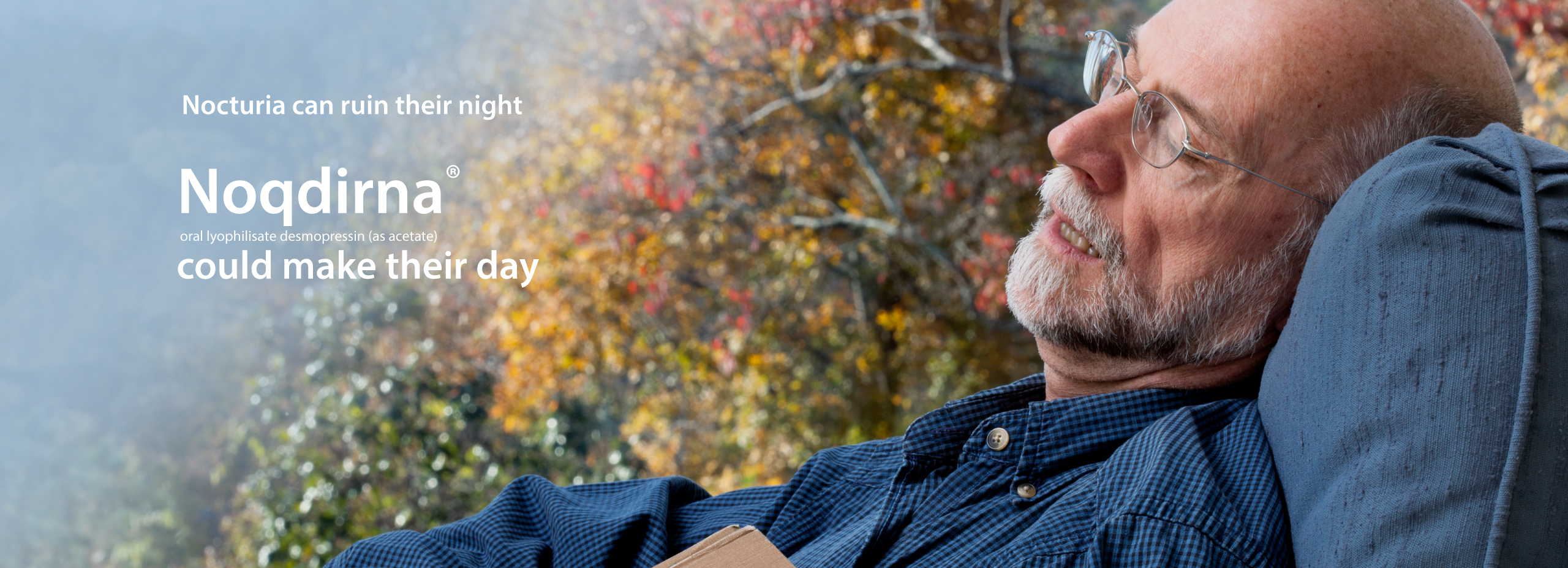
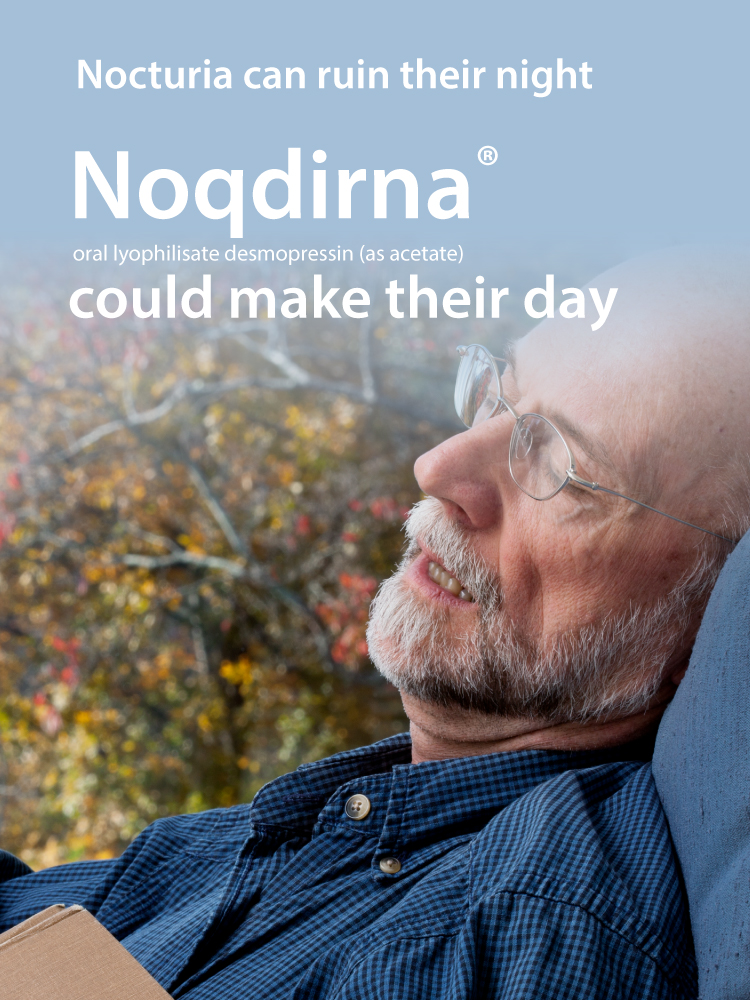
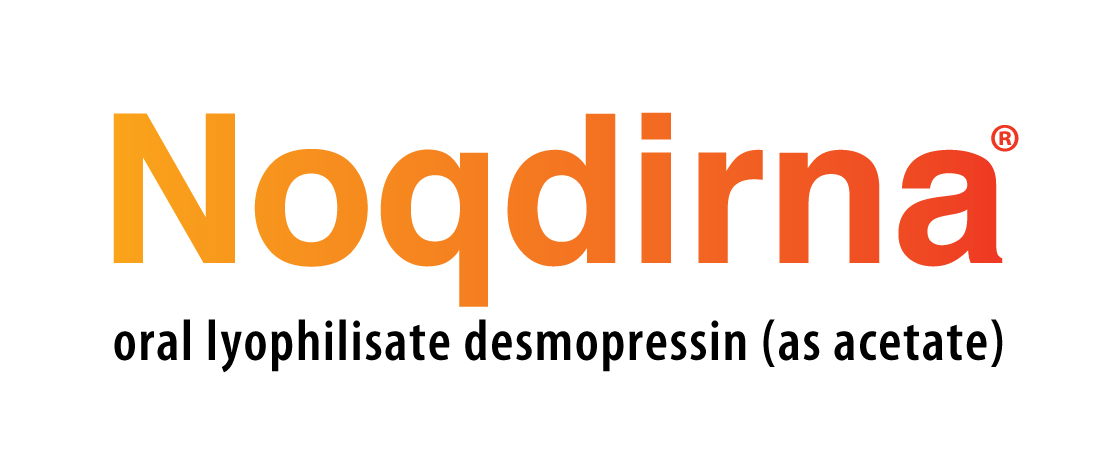
Adverse Event reporting information can be found in footer
Request a Meeting
Nocturia, waking at night to void one or more times, is a common reason for nocturnal awakening.2,3 Waking up two or more times at night is considered to be bothersome to patients.4
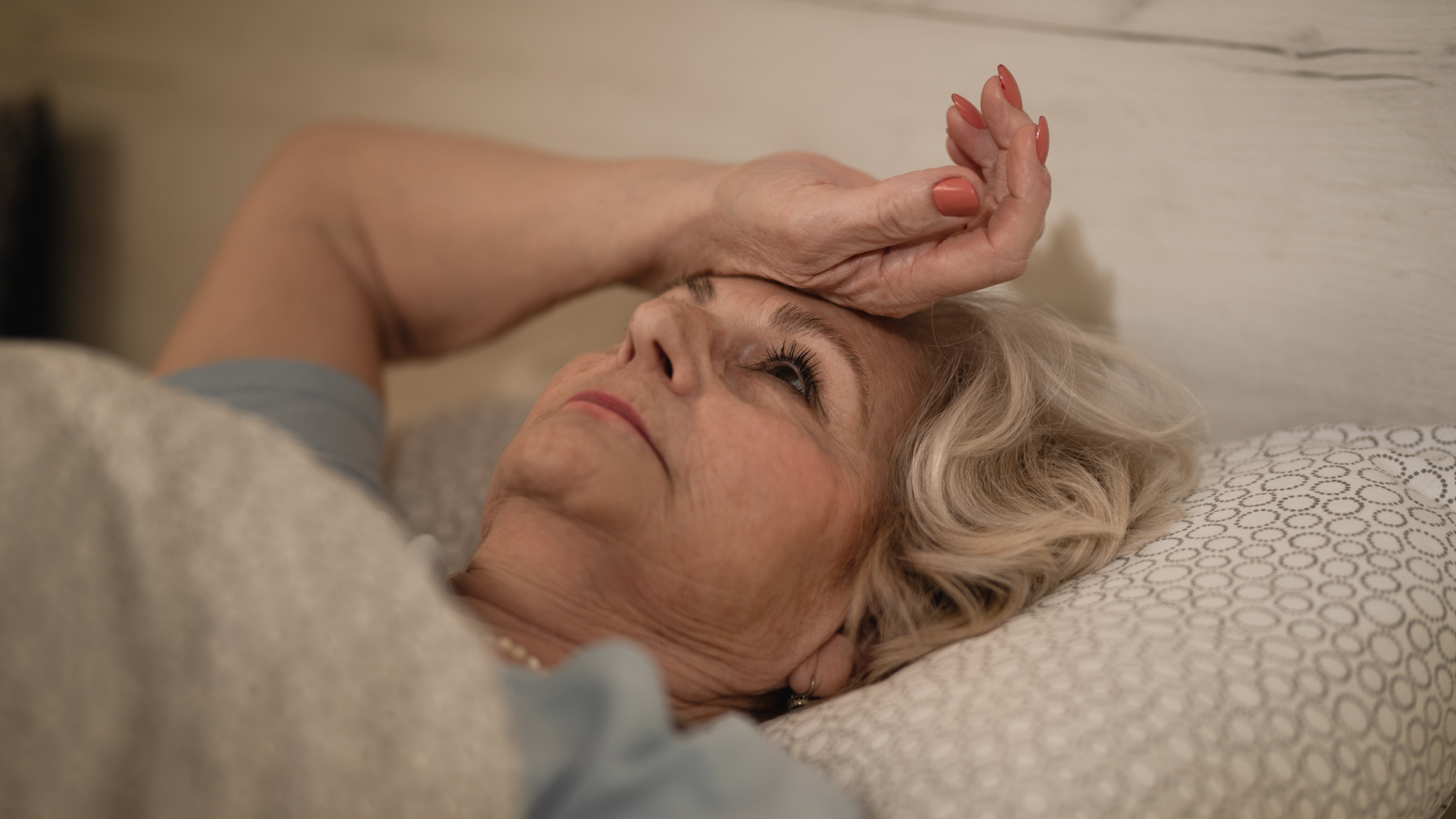
Nocturia has been traditionally regarded by urologists as a urine storage symptom associated with bladder outlet obstruction (BOO) and/or overactive bladder (OAB).7
In fact, patients who suffer from OAB or BOO with persistent nocturia despite treatment, may have underlying nocturnal polyuria regardless of gender, age, ethnicity or country.7
Nocturnal polyuria is defined as the production of abnormally large volumes of urine during sleep (>33% in elderly and >20% in younger patients of daily urine output).3 Arginine vasopressin (antidiuretic hormone or ADH), released from the brain, plays a key role in the control of urine production by increasing water absorption in the kidneys. This concentrates urine at night leading to decreased urine volumes during sleep.8 An insufficient level or absence of ADH at night can lead to large volumes of night-time urine production.8 This is due to reduced water absorption in the distal tubules and collecting ducts of the kidney.8
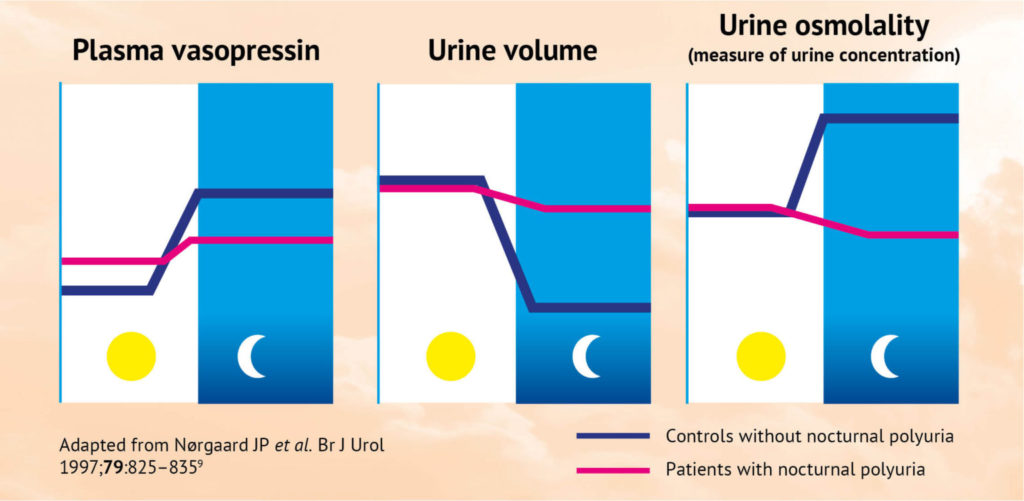
The potential for inadequate diagnosis in patients with NP is two-fold:7
As NP is often the cause of nocturia, clinical recognition of the condition can offer improved diagnosis and treatment options to patients with nocturia.7
OAB and BOO medications do not specifically target nocturia caused by idiopathic NP, which means these patients may be suboptimally managed.
Noqdirna (oral lyophilisate desmopressin as acetate) is the only licensed medication for the symptomatic treatment of nocturia due to idiopathic nocturnal polyuria in adults including patients over 65.10
An easy-to-use guide on how to differentiate OAB, BOO and NP to help find the right diagnosis for your patients suffering from nocturnal polyuria is downloadable here
Job Code: UK-NOQD-2000015 - Date of preparation: January 2023